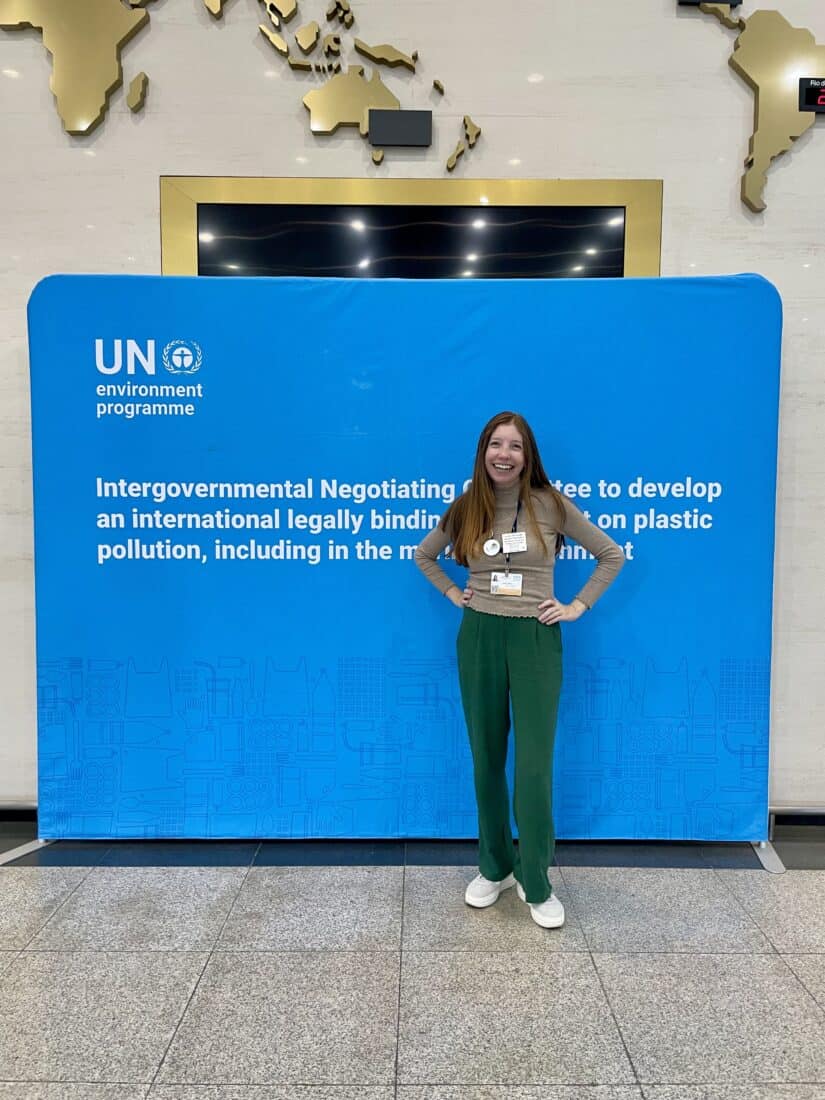ND Alliance Alumni Spotlight: Shellan Saling
This month, we’re excited to spotlight Shellan Saling, a passionate advocate for neurodiversity and a co-founder of the UC Davis chapter of The Neurodiversity Alliance. From building inclusive communities on campus to representing youth, women, and people with disabilities in international climate negotiations, Shellan has ensured that underrepresented voices are heard. We recently spoke with Shellan about her journey, the lessons she’s learned along the way, and her commitment to driving change, here’s what she had to say.
When I and others co-founded the University of California, Davis chapter of The Neurodiversity Alliance (formerly Eye to Eye), we set out to do more than just host weekly art rooms – we aimed to build a community within UC Davis and the wider Davis area. At the time, I didn’t fully realize that stepping into this leadership role would push me far beyond my comfort zone. I was eager to find a community of people who understood me, yet the idea of openly discussing my greatest insecurity, my attention deficit hyperactivity disorder (ADHD), was daunting.

Before The Neurodiversity Alliance, ADHD felt like both a curse and a gift. I struggled with self-acceptance and had learned to keep quiet about my challenges. But within this space, I found inspiration in leaders like David Flink, Founder and CEO of The Neurodiversity Alliance, Marcus Soutra, Former President of The ND Alliance, and my fellow co-founder and chapter leader, Ben Gurewitz, who showed me that it was better to speak out than to stay silent. Through outreach, advocacy, and creating new spaces, we laid a foundation for a stronger disability community at UC Davis, one that continues to thrive years later. My experience with The Neurodiversity Alliance taught me invaluable lessons: the power of community, the courage to speak up, the resilience to build something from the ground up, and the determination to keep going, even when faced with resistance.
After graduating from UC Davis, I carried these lessons with me as I lived and worked in Indiafor 1.5 years, focusing on girls’ rights and education in some of the most underprivileged communities. The experience was eye-opening,taking what I had learned about advocacy, inclusion, and community-building from The Neurodiversity Alliance and applying it to international development. My passion for social impact led me to Europe, where I pursued a master’s degree in Development Studies at the International Institute of Social Studies (ISS) at Erasmus University Rotterdam. There, I explored the intersections of disability rights, climate change, and gender equity, eventually writing my thesis on climate adaptation and mitigation, with a focus on extreme heat in the European Union.
Through it all, my involvement in The Neurodiversity Alliance gave me the confidence to embrace my neurodiversity. Wherever I went, I found myself gravitating toward communities of people with learning challenges, people who, like me, understood the value of advocacy and inclusion. As a result, I have learned our community is bigger than many think it is.
In the summer of 2023, I unexpectedly found myself in a new space: international climate negotiations. That November, I attended my first global negotiation, the third session of the United Nations Plastics Treaty negotiations, the first-ever international treaty aimed at addressing plastic pollution. I had known about these negotiations, but I never imagined that someone like me could be directly involved. It wasn’t until I was there, witnessing the discussions firsthand, that I grasped the significance of this agreement, the largest environmental treaty since the 2015 Paris Climate Agreement, and possibly even bigger in impact once finalized.
Once again, I found myself among young people in an underrepresented space. According to the United Nations, youth and children are considered those aged 35 and under. But as I stepped into this space, I also began to recognize something else: although I represent youth, I also represent women, and as much as I have complicated feelings about the term, I also represent the disability community, particularly those with invisible disabilities like ADHD and mental health.
Others and I saw an opportunity to amplify these voices and make sure that youth, women, and people with disabilities, including those with invisible conditions,had a seat at the table. The same lessons I learned from The Neurodiversity Alliance,building movements, fostering inclusion, and advocating for those often left out of the conversation,translated seamlessly into helping create a youth front to shape a global network of young leaders working together for meaningful change.
Looking back, my journey, from co-founding a ND Alliance chapter to international advocacy, has been shaped by the same core belief: that community, visibility, and perseverance can drive real change. What started as a search for understanding and acceptance has become a lifelong commitment to a sustainable future making sure others are seen, heard, and included. And that is a lesson I carry with me, no matter where in the world I go.
